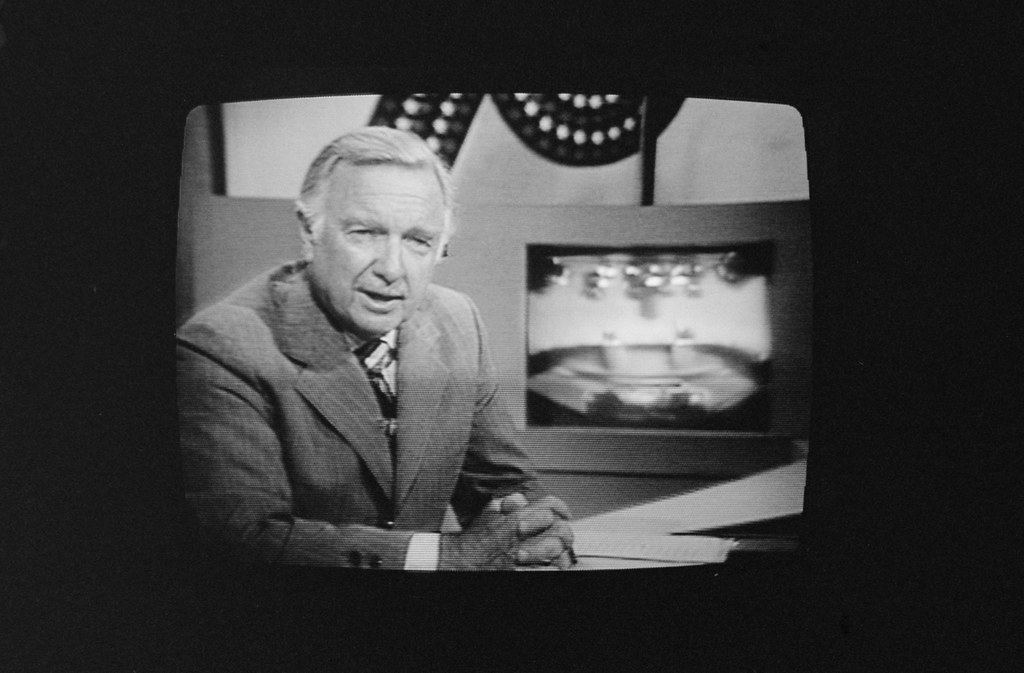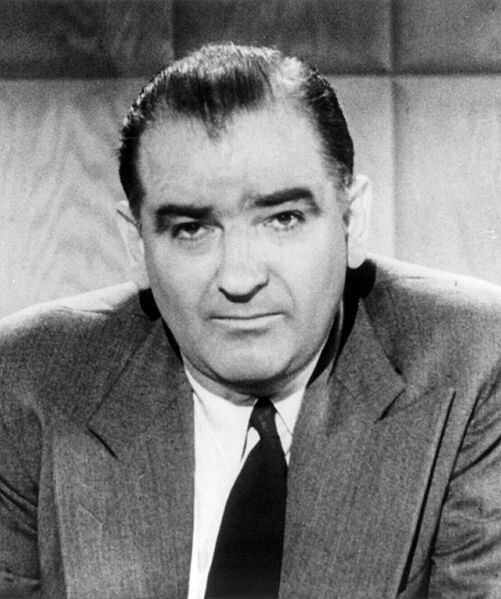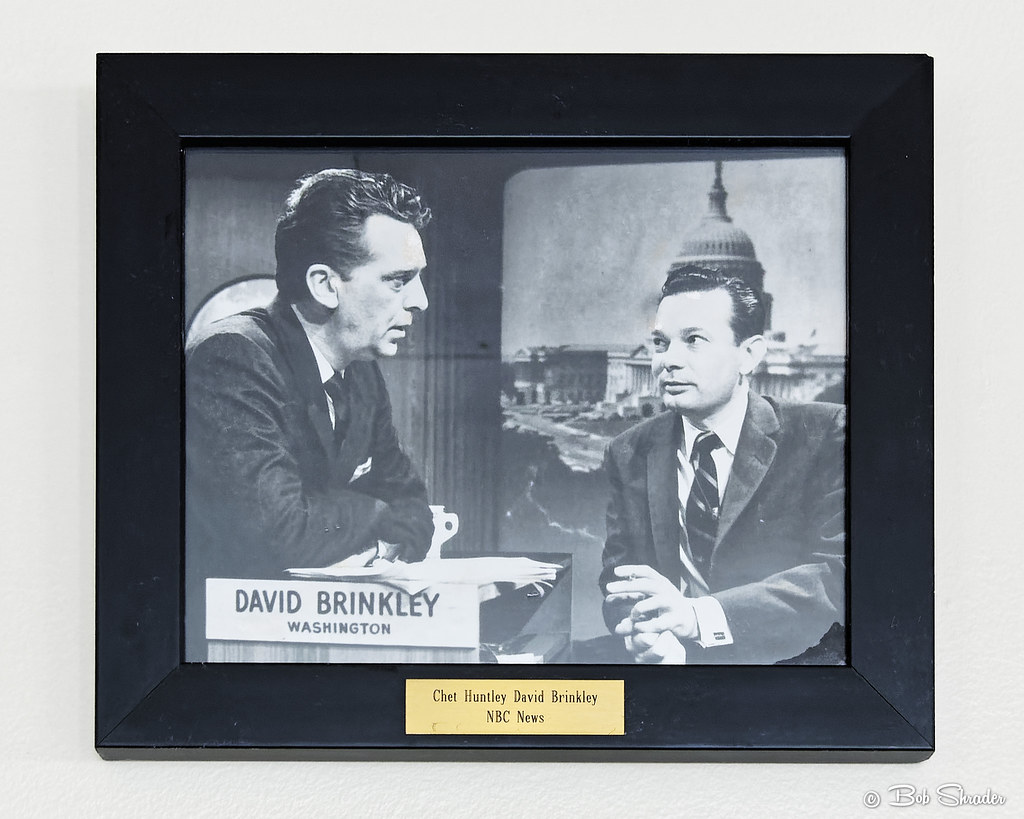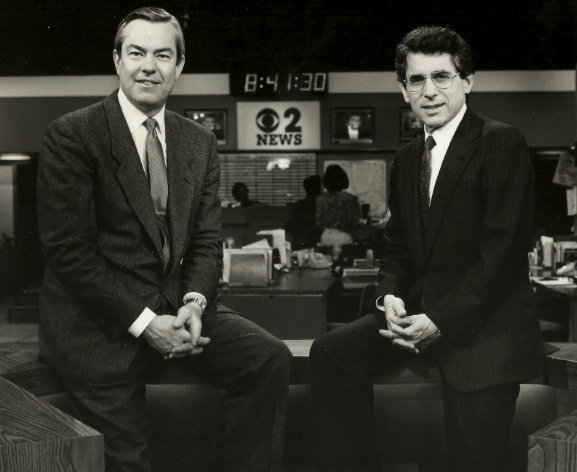
My first memory of broadcast news is the image of my mother madly ironing while watching something on television that clearly angered her, the Army-McCarthy hearings. I was just a kid and thus she never explained to me why she kept watching this when it was clearly upsetting her. I guess my grandkids could wonder the same thing about me as I can’t stop watching the House January 6 Committee Hearings. Like my mother, I am clearly distressed and yet I can’t look away.
Of course, the huge difference between these two broadcasts is that I can choose to watch the January 6 hearings on any cable network, so I choose one on which I know the commentary will agree with my assessment. Also, I can record the hearings if it is inconvenient to view them live and watch recaps over and over. So, unlike my mother, I can be upset 24/7 if I choose.
My parents always watched the evening news. I’m guessing they were fans of The Huntley–Brinkley Report that aired on NBC beginning in 1956. Even though I watched that on occasion, the broadcast news I remember best came from Walter Cronkite on CBS, once dubbed “the most trusted man in America.” For 19 years, from 1962 to 1981, he was the person I turned to deliver the news. Like many of us, I especially remember the newscast in which he told me President Kennedy had died. When he removed his famous dark-rimmed glasses to wipe his eyes, I dissolved into a flood of tears.
Until 1968, Walter Cronkite shared what the government wanted us to know about the war in Vietnam, but I was already firmly in the camp of total opposition. Because I respected Cronkite, I was thrilled when he delivered what came to be called “the Cronkite Moment” during a broadcast following his trip to Vietnam to cover the war, and the Tet Offensive.
At the close of his broadcast, Cronkite warned viewers that he was about to share his opinion rather than the traditional “objective” news. “It seems now more certain than ever that the bloody experience of Vietnam is to end in a stalemate . . . It is increasingly clear to this reporter that the only rational way out then will be to negotiate, not as victors, but as an honorable people who lived up to their pledge to defend democracy, and did the best they could.”
This statement made anti-war sentiment mainstream and was a first step toward the media shaping the opinions of its viewers rather than just towing the party line. For me, it affirmed what I believed about the war and, at the time, I appreciated Cronkite telling the public that this war was a huge mistake and not winnable.
For years, my husband and I watched the Ten O’clock Nightly News with local co-anchors Walter Jacobson and Bill Kurtis to get a recap of what was happening and to hear the local sports and weather forecast. I used to exercise to the beginning of the Today Show because its first 20 minutes were commercial free. Fast forward to more recent times with the growth of cable “news,” which is much more opinion than news. I had a brief addiction to Morning Joe even though I didn’t agree with most of Scarborough’s opinions. He was on at a convenient time so I could exercise before going to work, and he often inspired blog posts.
Next, I recorded Rachel Maddow (before she switched to Mondays only). More recently, I have worked out to All In with Chris Hayes, which I like even more because he is intelligent and thoughtful without some of Rachel’s schtick. I could fall down a rabbit hole and spend most of the day switching between CNN and MSNBC, but the news is too depressing to watch the same stories over and over.
When my mother was 90 and living on her own, my brother introduced her to MSNBC. She was hooked but found the news so distressing that I told her to find something else to fill her days and finally asked my brother to cut her off. Now, I fear I could easily become my mother, watching endless coverage of the January 6 Hearings. I try PBS for a less biased version of the news, but I can’t bring myself to watch Fox to see what the other side thinks. I really don’t care, and that’s the way it is.
Boomer. Educator. Advocate. Eclectic topics: grandkids, special needs, values, aging, loss, & whatever. Author: Terribly Strange and Wonderfully Real.






Of course, Laurie, I couldn’t agree more with your title or your discussion about Walter Cronkite’s huge impact on public opinion about the Vietnam War. Our great minds do think alike!
But I further appreciated your broader, thoughtful review of television news through the decades. (With great photos all along the way.) And making the point that, as much as we agreed with Cronkite, that was also the beginning of the line between news and opinion breaking down, the net result being the Fox “news” garbage that is spewed forth every day. So a tough, complicated issue.
That said, what is clearly not opinion is what happened on 1/6 and I am so thankful for the House Commission for showing us that. I, too, am addicted and, as horrible as it is, I will miss it when it concludes — particularly as I fear the US sinking even deeper into the realm of what is, in fact, “fake news.”
It is complicated, especially because I confess that I like to get my news from people I trust, which means usually on CNN or MSNBC. I know it’s not news in the model of Cronkite, but things are so bad these days that I need to hear that people agree with me. It’s not “fake news” when I hear it from my side, right? I wonder how many Americans are even aware of what the 1/6 commission is sharing.
Thanx Laurie for your ever thoughtful story, this time about your relationship to the news and to Walter Cronkite. The image of your mother ironing as she seethed over the TV news reminded me of coming home from school in the afternoon surprised to find my parents watching TV, something that didn’t usually happen at that hour. They were watching the McCarthy hearings and had a personal connection as my uncle who was a Hollywood screenwriter had been called before HUAC .
And yes here we are watching again.
So sorry your uncle suffered from McCarthy’s reign of terror. It’s sad that we both have this first memory of “the news.”
Well done recap of big news moments and the big journalists who covered them, Laurie. The McCarthy hearings are just an angry footnote in history for me, but we too, began with the Huntley-Brinkley Report until they went off the air, and then switched to Walter Cronkite for the rest of time (we still watch CBS News, no cable for us).
Like you, I am engrossed (and grossed out) by the 1/6 Commission Hearings. I want to watch all the live hearings (though I don’t care about what the pundits have to say – I’ll read about that later). And, like you, if I can’t watch all of it live, I’ll record, but I WILL watch all of the hearings. I want to hear every word! I am so repulsed by anything on Fox, even their so-called “news” that I can’t bring myself to see what they might have to say. Just can’t do it.
Thank you for including all these great clips. Definitely note-worthy.
Thanks to a fellow January 6 hearing addict. As I watch in outrage, I am saddened by the knowledge that Trump may never face consequences for his actions. So far, no one in his clown car of close advisors has.
Great recap of times past and present, Laurie. I am always nagging at Dick to turn off the news, even though it’s CNN, because we get so riled up. I can’t watch news in the evening at all if I want a good night’s sleep, although I will watch PBS News Hour because it’s on at 3 PM here. Good point about recording. While you can be upset 24/7, you can also fast forward, thank goodness.
So true about recording the hearings so I can watch them earlier in the day and fast-forward the parts that have already been reported. I get Dick’s addiction. It’s like a car wreck — hard to turn away.
Like Marian, I don’t like to watch the news these days (well, ever since T was elected). I would rather read about what’s going on in the newspaper, while we still have those.
Love the image of your mother ironing because she was so mad about McCarthy! And I love that four of you writers picked the Cronkite signoff for your story titles. He really was the epitome of someone we could trust to tell us “the way it is.”
Even reading about things is hard these days. My mother could wield a mean iron, so I knew something was up when I saw her reaction to McCarthy on TV. I guess none of us could totally abandon Cronkite’s tag line.
Great post, Laurie. I think the child in me wonders, as you did, why I would watch a television show that made me so upset and yet, as you say, “I can’t turn away.” You captured one of the basic media conundrums of our time.
So true, Charles. As awful as the news is, I feel compelled to keep checking. Perhaps I am hoping something will change for the better, but of course, that has not been the case.
Maybe the compulsion to watch the news is that we think it matters to know what is happening in the world. That is not so bad, distressing though it is. My mother used to iron while watching TV too. My memory of the McCarthy years were before we owned a TV, so the news came from Edward R Murrow–glued to the radio instead. I liked the way you circled back to the tag line at the end of the story.
I still do think it matters, but it has become very hard for Americans to agree on which version of the news to trust. My compulsion stems from a naive hope that something will change to make our world better. Of course, most of the time, the news just adds to my stress.